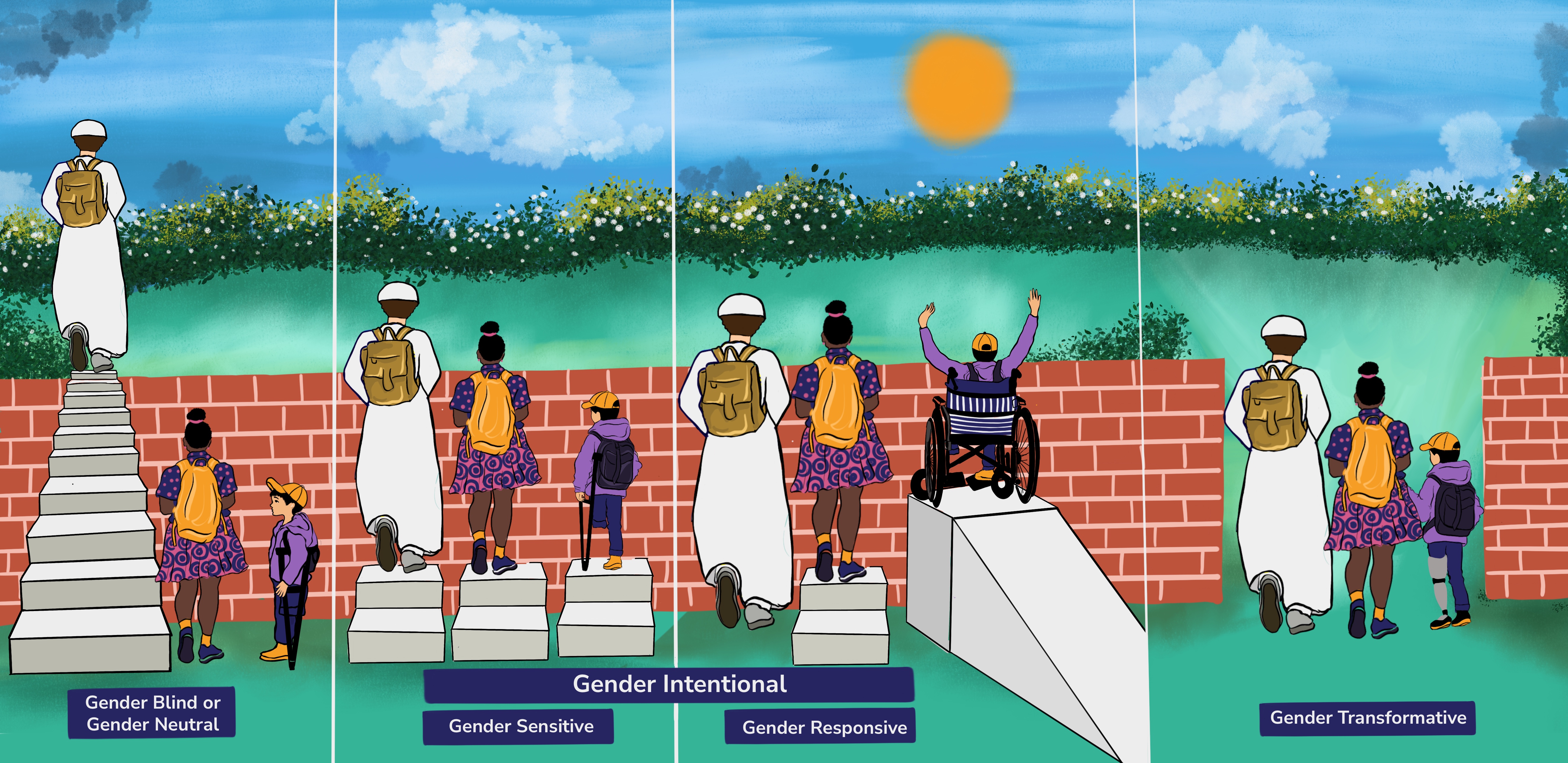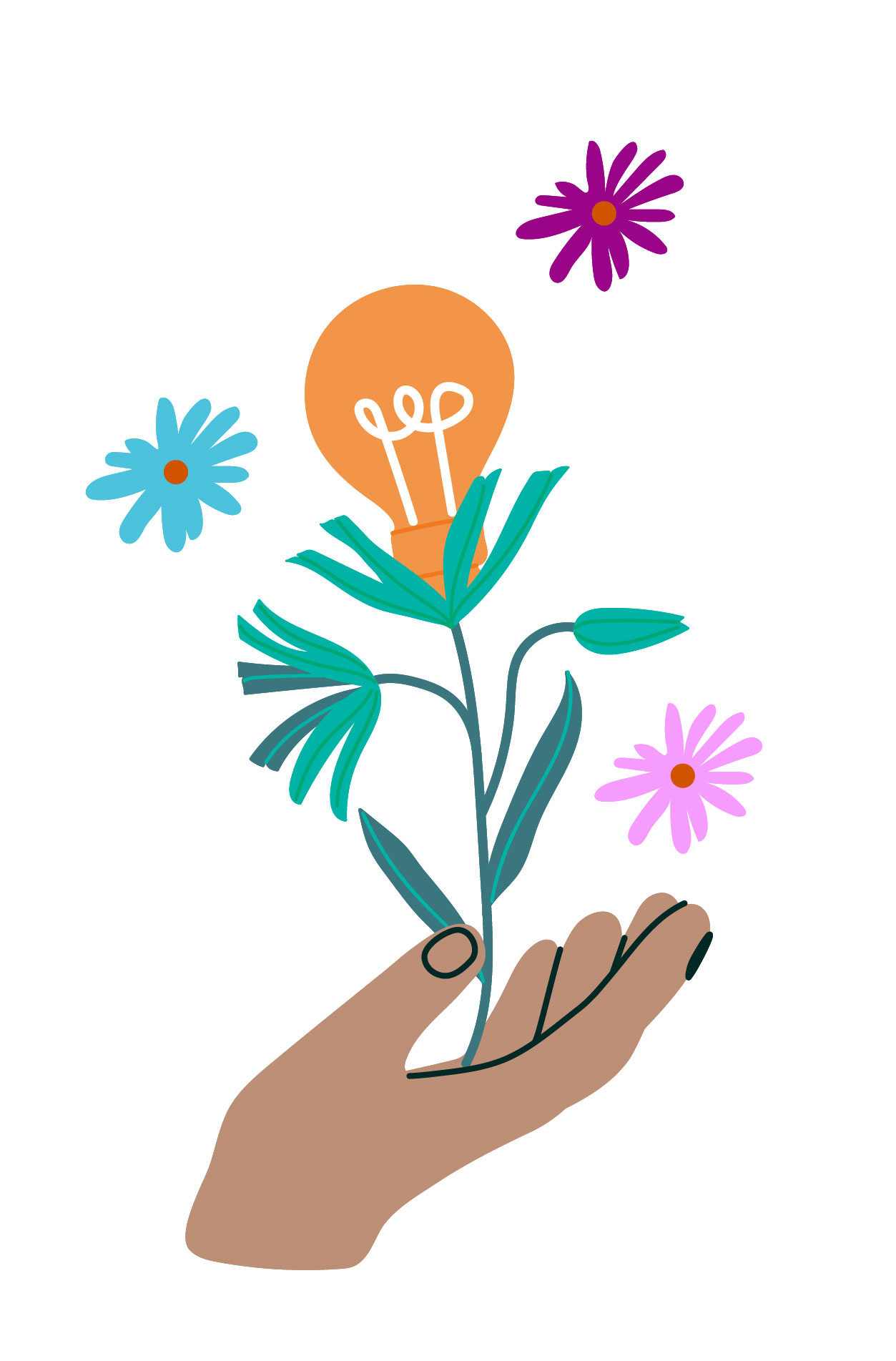Your gender-transformative education glossary
All the key terms you need to understand when preparing for Gender-transformative education, quickly and effectively
Glossary
Purpose of the glossary
The purpose of this glossary is to put together in one place all the terms associated with gender equality in and through education and define them so that we are all using these terms to mean the same things.
Like all glossaries and dictionaries, this is a live document. Terms can be added, subtracted, merged. Definitions can change.

Definition of Gender-transformative education
Gender-transformative education is learning to understand, recognize and challenge root causes of gender inequality and injustice. The “transformation” is in people’s attitudes, beliefs and behaviours and in the education system – from gender unequal to equal. Gender-transformative education seeks to utilize all parts of an education system – from policies to pedagogies to community engagement – to transform stereotypes, attitudes, norms, and practices. The goal of gender transformative education is a world in which a person’s gender does not impact their access to power, resources and opportunities. The term gender-transformative assumes an intersectional understanding of gender.
Gender-transformative education can be called feminist education.

Glossary
Intersectionality
What makes gender inequality worse for some people and better for others?
Towards transformations
What are the forces for good that can help us achieve gender equality in and through education?

Glossary methodology
Identifying and defining the terms in the glossary took place over two years.
Phase 1 (2023)
A diverse array of stakeholders within gender and education were engaged in consultations through methods such as focus group discussions, one-on-one conversations, and an online survey. The survey was made available in eight languages: English, French, Spanish, Hindi, Nepali, Bangla, Mandarin, and Arabic. A total of 197 responses were received from the survey across five languages –– English, Hindi, Nepali, Spanish, and French. Out of these responses, 10 were from academia, 131 represented NGOs, civil society organizations, and women’s rights organizations, 10 were UN representatives, 14 were government representatives, 23 were youth representatives, 4 were funders and donors and 5 were from other private sector institutions. In addition to the online survey, one focus group was held with representatives from 12 youth-led organizations and 9 one-on-one conversations with representatives from academia, LGBTIQ+ organizations, and international non-governmental organizations.
Phase 2 (2024)
The second focused phase began in the summer of 2024. An initial survey recruited stakeholders from civil society organizations, NGOs, women’s rights organizations, academics and UN representatives to participate in this second phase. Stakeholders participated through methods including surveys; focus group discussions; and one-on-one conversations. The 2023 survey data was used to develop a shortlist of concepts and glossary structure. Participants provided feedback on these concepts through 4 focus group discussions and a brief survey. Subsequently, conceptual definitions were developed through a selective review of scholarship in feminist studies and education. Participants provided feedback on definitions via 3 focus group discussions, four one-on-one conversations, and a brief survey. Consultation participants in Phase 2 included: 13 NGO and civil society representatives, 10 researchers; and 14 UN representatives.
Acknowledgements
UNGEI wishes to thank the writers, thinkers and designers behind this glossary (in alphabetical order): Ashlee Burnett (Transform Education), Karishma Desai (Rutgers University, Graduate School of Education, with graduate student assistance from Olivia Casey, Shelly Sulaicka McClean Bent, and Patricia Grillet Rodriguez), Antara Ganguli (UNGEI), Shuo Guo (UNGEI), Jennifer Thomas (UNGEI) and Vidushi Yadav.
We are grateful to Echidna Giving and Global Affairs Canada for the financial support to develop this glossary.
Finally, and most importantly, we are grateful to all the thinkers, experts, practitioners and activists who have contributed to this glossary. We recognize and are grateful for your insights and your time.
Annex
Annex: Landscape Review undertaken in Phase 1
Do you have comments or questions? We will be reviewing and updating this periodically.
Please email contact@ungei.org.
 English
English العربية
العربية Български
Български Hrvatski
Hrvatski Čeština
Čeština Dansk
Dansk Nederlands
Nederlands Suomi
Suomi Français
Français Deutsch
Deutsch Ελληνικά
Ελληνικά हिन्दी
हिन्दी Italiano
Italiano Română
Română Русский
Русский Español
Español Maltese
Maltese Zulu
Zulu አማርኛ
አማርኛ